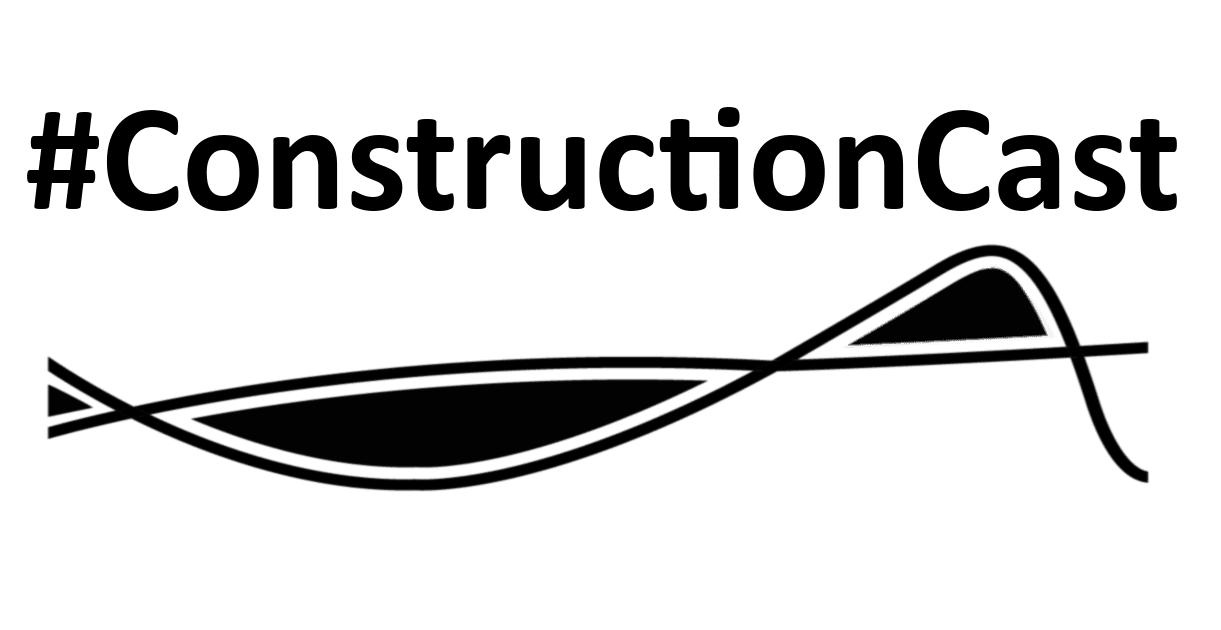On Wednesday 27th of April, Annie was joined by Nicholas Eldred, Polly Fox and Catrin Rees for series four episode three of #ConstructionCast to discuss in-house counsel. The full recording is at the end of this page, or on our YouTube channel…
What does in-house counsel look for in private practice solicitors?
In-house counsel teams generally, only use external law firms for advice on topics that are particularly specialist. They may often also go elsewhere for support if they are going to adjudication that is paper-heavy and they do not have the capability to deal with it in-house. The key is to provide realistic estimates or caps in advance. In-house counsel would rather know the truth than being told what they want to hear then end up with a massively increased bill at the end.
Law Firm Loyalty
Depending on the legal needs there might be law firm loyalty. If there is a law firm that covers one aspect of law, then it would make sense to go to them for everything regarding that topic.
However, some legal needs can be quite complex so help may be needed in a variety of areas that are very specialist. Consequently, one particular firm may be used for certain things on that topic. When using the same firm over and over again lawyers can develop deep relationships with each other. Often if a particular individual moves firms, then in-house counsel will follow them with their work.
However, if there is a lot of work in one area such as commercial then two firms may be on the books to use. This adds an element of competition.
Relationships are incredibly important. Working with people that understand the business is critical. As a result, the reputations of the law firms may be less important than the individual themselves.
Positive Relationships with Solicitors
The ability to collaborate and cooperate with the other lawyer is really important. Developing relationships with people you work well with can be a positive thing.
Essentially a private practice solicitor can become an extension of an in-house team. So, spending time working with them and building those relationships is never a waste of time. They can really help when it comes to it, you never know when you might need them. So having a good working relationship is critical.
Trust and communication are key. Along with the need to treat each other fairly. Things work best when external support understands the team, the internal politics and what challenges in-house counsel face.
What’s Bad?
Legal advice that cannot be used in practical terms. Although it may be accurate in a legal context, it is not useful in the confines of the situation at hand. The law can be found in a book, but what is actually useful to the counsel is something else. In-house counsel is looking for legal advice that adds value.
A misunderstanding of the business is a real problem. A basic understanding of the business is important. There is a lot of information out there so put in the effort.
All-male pitches are not good enough in the 21st century.
Billing to the second is an irritation. If a matter has gone quiet, billing for calls chasing for information where there isn’t any is annoying. If things have gone quiet and there is not much to do in-house counsel does not want to be billed for relaying that information.
Budgets
Nobody wants nasty surprises. In-house counsel would rather know upfront if it is going to be expensive than receive an unexpected bill at the end. If it is going to cost let them know in advance so they can make a decision internally whether to go forward or not. In private practice, there is almost a tendency to pitch low. But the people paying are the client so inevitably those costs will need justification. So, unexpected costs make things difficult. The key is clarity in advance.
Asking for plans of the costs can also help to show the client where the costs are likely to incur. With this plan, you can tell the clients where they might want to resolve the matter before a particular point rather than after the peak of costs. Court cost scheduling is helpful and understanding where the costs are likely to arise can help get a dispute to a resolution sooner.
Communication is Key
In-house counsel needs advice that adds value and meets needs. A recitation of the contract is not what they need, they can do that themselves.
Presentation of advice is also a contributing factor to how useful it can be. A straightforward A4 format with a legible size font with clear points. The advice needs to also be understandable to a reader straight away. They need to be able to decipher what is being said rather than spend hours figuring it out.
Again, the bad news needs to come early.
When there is repour often the same firms with be used again and again. However, sometimes if there are other panel firms across the board they might need to be used as well.
When there’s a specialist who knows you well and gets the advice summarised and gets it right in the first two paragraphs of advice, that’s wonderful. Management doesn’t have time to read a detailed advice document, so ensuring the advice is summarised in the initial few paragraphs is key.
Things that are Useful
If you have developed a good relationship over time, you can call upon the solicitor when you are in a time of need.
You can also use them if you need to deliver a tough message. For example, if you are trying to get a point across but you are struggling then you can bring them in as backup. Using external people can be valuable. Sometimes using the right firm’s letterhead is useful to deal with a scenario.
Training is another useful thing about solicitors because often they provide huge amounts of training for themselves due to CPD. Moreover, they also offer places for members of the in-house team to attend the training or provide specialised training which can be incredibly informative. This works well for both sides as they can also build stronger relationships and repour for their training too.
Difference between in-house and private practice
There is a clear difference in the formality of advice given between in-house and private practice. With in-house, the advice is quite informal. People will just call and expect advice to be given over the phone. Whereas with private practice formal meetings were booked in and prep was done before the meeting. There is a very clear difference in pace.
Moreover, with in-house, there is a more collegiate relationship with clients. As a solicitor in-house you are treated like a colleague rather than a legal adviser. There are obviously benefits to both, but there is a sense of being part of the team in-house.
Proposals that Work
Our panellists were asked in the Q&A what one single piece of advice they would give people when writing a proposal to work with an in-house team.
Nicholas’s piece of advice was to demonstrate value for money. The expertise of a law firm is generally assumed. But the value for money is the critical part.
Catrin’s piece of advice was to look at who you are pitching to. There is a lot of information available so use it. Look into the backgrounds of the people you are pitching to and what their interests are. Find out how they might respond to you and lay your pitch out in such a way that suits them. Maybe if you have insider knowledge, find out what the gaps are in the advice they are receiving now. Ask someone to go for coffee first to get the knowledge.
Polly’s piece of advice was that the associates do the bulk of the work and often are not brought along to the pitch so why not bring them along. They know what the proposal says. More thought generally in the industry in this area needs to be given to that.
What to Expect?
The best advice is laid out in a logical format and is both straightforward and accessible. Make the advice you are giving user friendly, and detailed and put an executive summary where the knowledge is at the beginning, so people know what they are reading from the start. Often people will not read beyond the first page. So, get to the point.
Furthermore, to get good advice sometimes solicitors need time to gather the information and check things. That is fine, if a solicitor needs more time, then ask for it from the in-house rather than pretending the advice is ready when it is not. Communicate rather than assume.
Finally, don’t publish deadlines on external counsel. Give external lawyers a proper deadline with plenty of time to think that is achievable. You want better more thought-out advice. So, give achievable deadlines rather than asking for something that they cannot do as then everyone suffers.
Keep your eyes peeled for our next #ConstructionCast webinar here.
Watch the full webinar recording here on the Limeslade YouTube channel.

